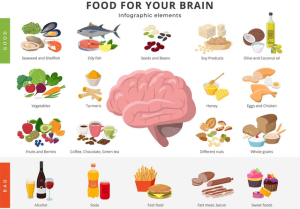Key Takeaways
Ketamine-Assisted Psychotherapy:
- Novel Treatment: Ketamine-assisted psychotherapy offers a unique approach for addressing treatment-resistant mental health conditions.
- Rapid Relief: Ketamine’s fast-acting properties provide rapid relief from symptoms of depression, anxiety, and PTSD.
- Therapeutic Support: Integrating psychotherapy sessions with ketamine administration enhances the therapeutic process and outcomes.
- Potential Risks: Despite its benefits, ketamine therapy requires careful monitoring due to potential side effects and abuse potential.
Check out our Ketamine Treatment Services.
Ketamine has been used as an anesthetic in the United States for decades. However, in recent years, ketamine has also been looked at for other conditions, including chronic pain and major depression treatment. In addition, ketamine-assisted psychotherapy, or KAP, is increasingly becoming an option to treat various mental health conditions.
Ketamine-assisted psychotherapy can provide relief for individuals suffering from treatment-resistant depression, PTSD, OCD, addiction, migraines, and anxiety. This method uses ketamine dosages to enhance the therapeutic process.
Research continues to identify potential uses for ketamine. And while it still isn’t a first-line treatment for many mental health conditions, it can provide rapid results with few side effects for some individuals.
How Does Ketamine-Assisted Psychotherapy Work?
Since it has a long history in the medical field, ketamine has proven safe for use, making it ideal for supervised use for mental health conditions. It is a dissociative medicine that may result in psychedelic effects, some of which may create a new understanding of the human psyche outside of personal identity.
KAP is an innovative psychological approach that combines ketamine therapy with standard psychotherapy. Ketamine is safe in low doses because it softens natural psychological defenses.
Psychotherapy during ketamine administration optimizes the drug’s biological, experiential, and psychological impacts. Combining these two therapies allows them to work together, thereby achieving results that neither element could achieve alone. In addition, it provides for profound self-reflection and the management of painful symptoms often associated with mental illness.
Additionally, experiences during ketamine sessions can often provide clarity and vision into one’s psychological struggles. These connections can bring additional meaning to the patient’s life. The integration of the psychological material that comes up during a ketamine experience is how psychotherapy plays an integral role in the healing process.
Ketamine-assisted psychotherapy can accelerate the process of growth or change for the individual undergoing treatment; since ketamine can:
- Dissolve the usual ego defenses
- Bypass entrenched beliefs and ways of thinking and perceiving the self
- Expand states of consciousness
Ketamine-assisted psychotherapy allows the integration of the medicine experience by guiding a person through finding the meaning of the experience and how to move that out into the other aspects of their life.
Ketamine treatments work by acting on the NMDA receptor in the brain, resulting in increased activity of a neurotransmitter called glutamate. Increased glutamate levels can enhance one’s mood, decrease anxiety, and alleviate depressive symptoms. It also reduces inflammation in the nervous system and stimulates the development of new nerve connections.
As a result, patients undergoing KAP often report an elevated mood, decreased depression and anxiety, increased energy, and improved coping skills. A multitude of clinical trials supports the premise that KAP is effective for many individuals with mental health diagnoses, particularly those with severe symptoms.
What to Expect in a Ketamine Therapy Session?
Many individuals exploring ketamine-assisted psychotherapy may have questions about what to expect during an integration session. These sessions generally last about 40-60 minutes. A qualified therapist will help you process the ketamine medicine session experience during that time. This session happens 24-48 hours after the ketamine medicine session. The therapist is also present during the entire ketamine medicine session.
The psychedelic-assisted discussion can bring up many strong images and emotions. During this time, the therapist will ensure you feel safe and supported throughout the experience. This process allows the therapist to provide more support through challenging material. During these sessions, the patient can discuss any ideas, feelings, and sensations experienced during the infusion session.
The side effects of taking ketamine are often mild for many patients. The most common side effects are elevated blood pressure, nausea, vomiting, perceptual instabilities such as speeding or slowing, and overstimulating colors, textures, and noises.
The bottom line is that many patients – especially those with severe symptoms and treatment-resistant mental health disorders – may benefit from ketamine-assisted psychotherapy. Benefits often found by patients undergoing this type of treatment include:
- Helping one recognize harmful or ineffective behaviors and thinking patterns
- Helping one understand interpersonal issues, such as unsettled grief, changes at work or in social settings, and issues with relationships
- Helping one cope with long-term suicidal thoughts
- Assisting with coping strategies
- Improving self-awareness
- Developing positive coping mechanisms
Getting through the day can be difficult for many people with major depression, PTSD, OCD, and other mental health issues. This is especially true if the condition doesn’t respond to most standard treatments. Ketamine-assisted psychotherapy offers a safe alternative that may improve the symptoms of millions of Americans suffering from mental health conditions.



